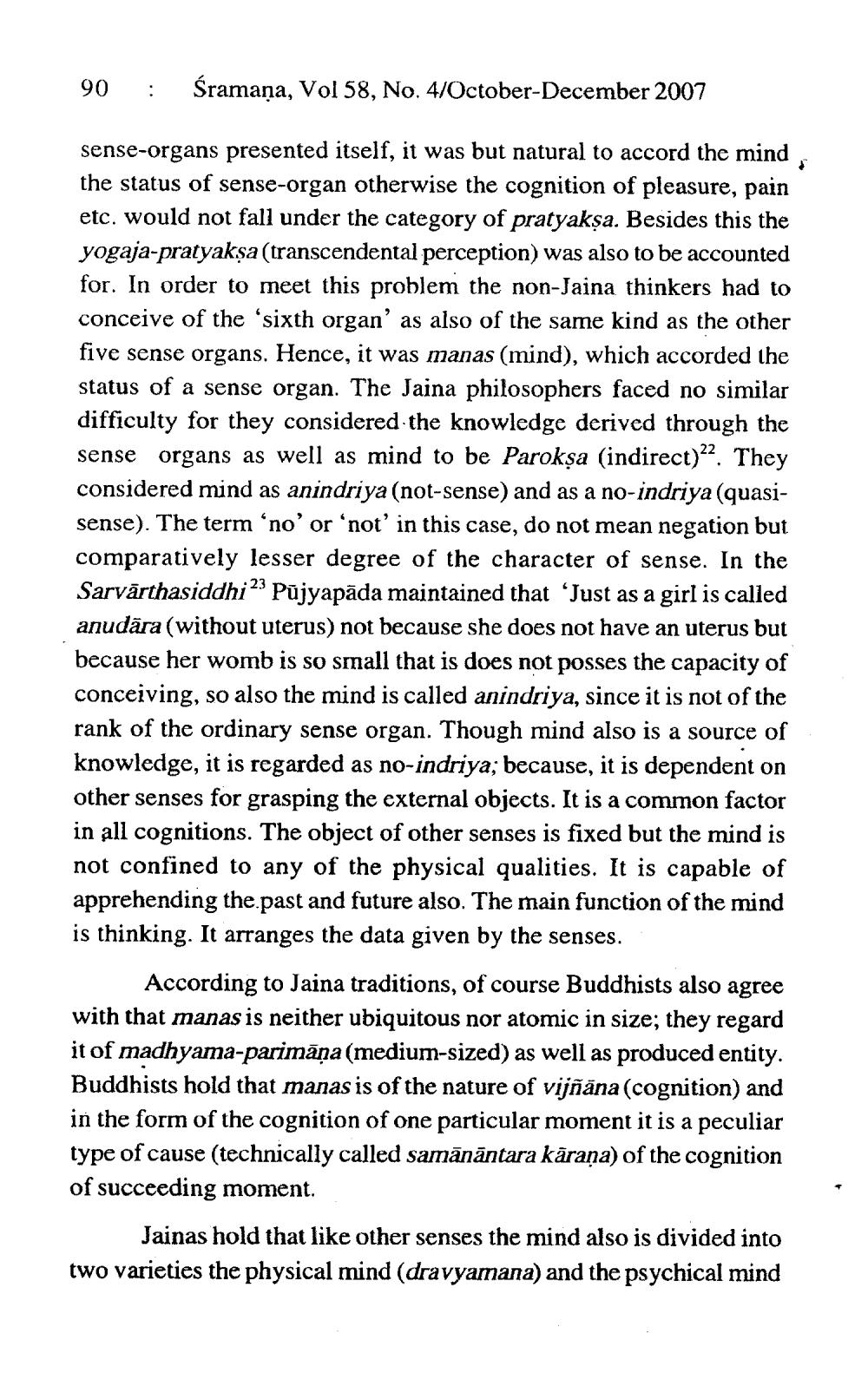________________
: Śramaṇa, Vol 58, No. 4/October-December 2007
sense-organs presented itself, it was but natural to accord the mind the status of sense-organ otherwise the cognition of pleasure, pain etc. would not fall under the category of pratyakṣa. Besides this the yogaja-pratyakṣa (transcendental perception) was also to be accounted for. In order to meet this problem the non-Jaina thinkers had to conceive of the 'sixth organ' as also of the same kind as the other five sense organs. Hence, it was manas (mind), which accorded the status of a sense organ. The Jaina philosophers faced no similar difficulty for they considered the knowledge derived through the sense organs as well as mind to be Parokṣa (indirect)22. They considered mind as anindriya (not-sense) and as a no-indriya (quasisense). The term 'no' or 'not' in this case, do not mean negation but comparatively lesser degree of the character of sense. In the Sarvärthasiddhi 23 Pūjyapāda maintained that 'Just as a girl is called anudāra (without uterus) not because she does not have an uterus but because her womb is so small that is does not posses the capacity of conceiving, so also the mind is called anindriya, since it is not of the rank of the ordinary sense organ. Though mind also is a source of knowledge, it is regarded as no-indriya; because, it is dependent on other senses for grasping the external objects. It is a common factor in all cognitions. The object of other senses is fixed but the mind is not confined to any of the physical qualities. It is capable of apprehending the past and future also. The main function of the mind is thinking. It arranges the data given by the senses.
90
According to Jaina traditions, of course Buddhists also agree with that manas is neither ubiquitous nor atomic in size; they regard it of madhyama-parimāṇa (medium-sized) as well as produced entity. Buddhists hold that manas is of the nature of vijñāna (cognition) and in the form of the cognition of one particular moment it is a peculiar type of cause (technically called samānāntara kāraṇa) of the cognition of succeeding moment.
Jainas hold that like other senses the mind also is divided into two varieties the physical mind (dravyamana) and the psychical mind




